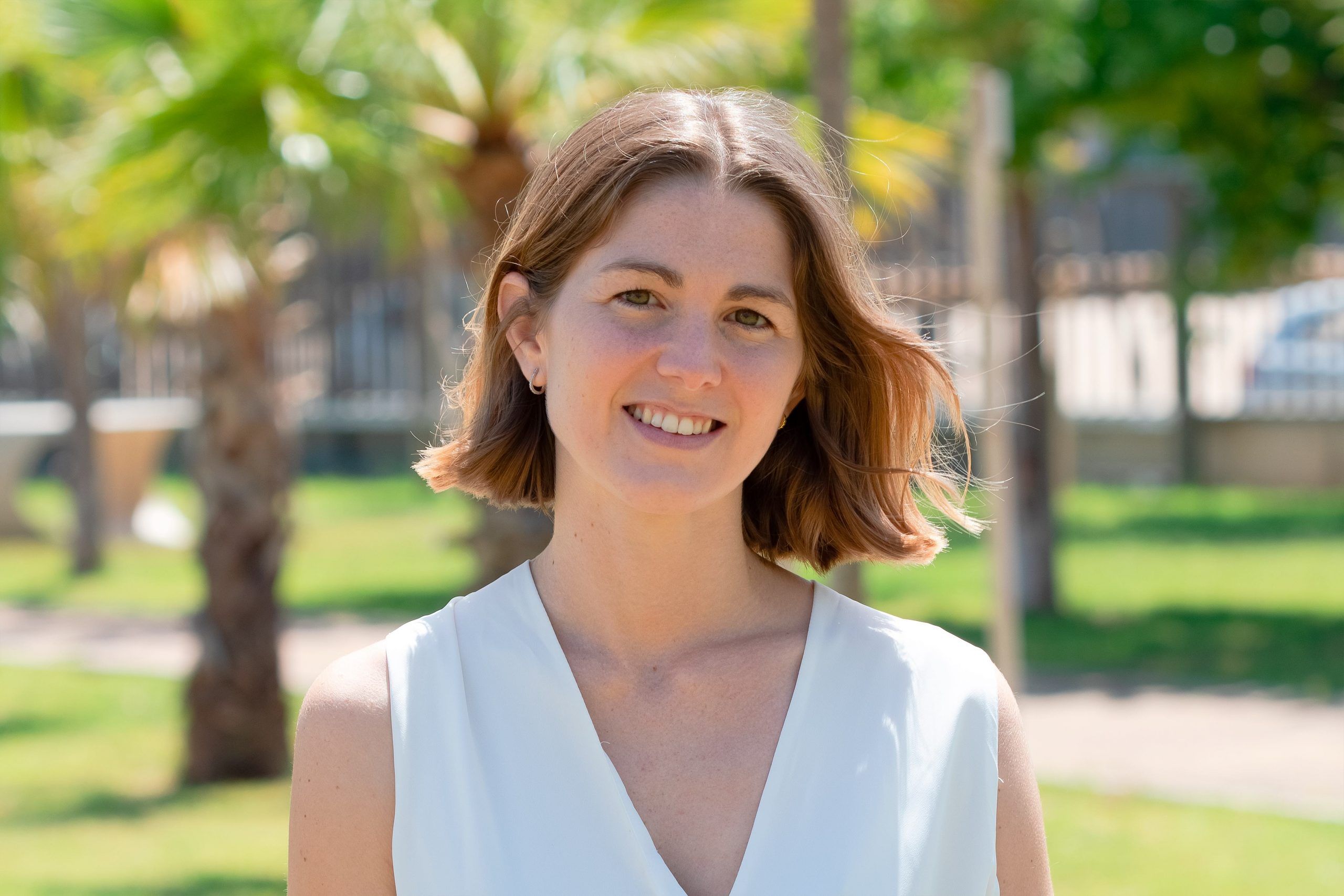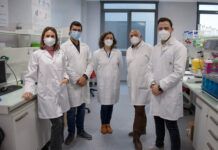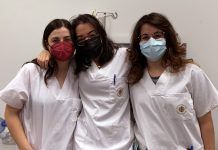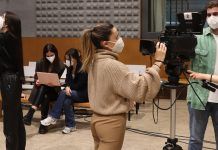Marta Sala is a community pharmacist and nutritionist. A student at CEINDO, CEU’s international doctoral school, in this interview she told us about her research on nutrition and cognitive impairment. This began with her end-of-degree project (TFG) for Pharmacy, and she has continued with it as she studied for a Bachelor’s Degree in Nutrition, and now also as a member of the CRIDECO research team, focusing on using community pharmacies for the early detection of cognitive impairment.
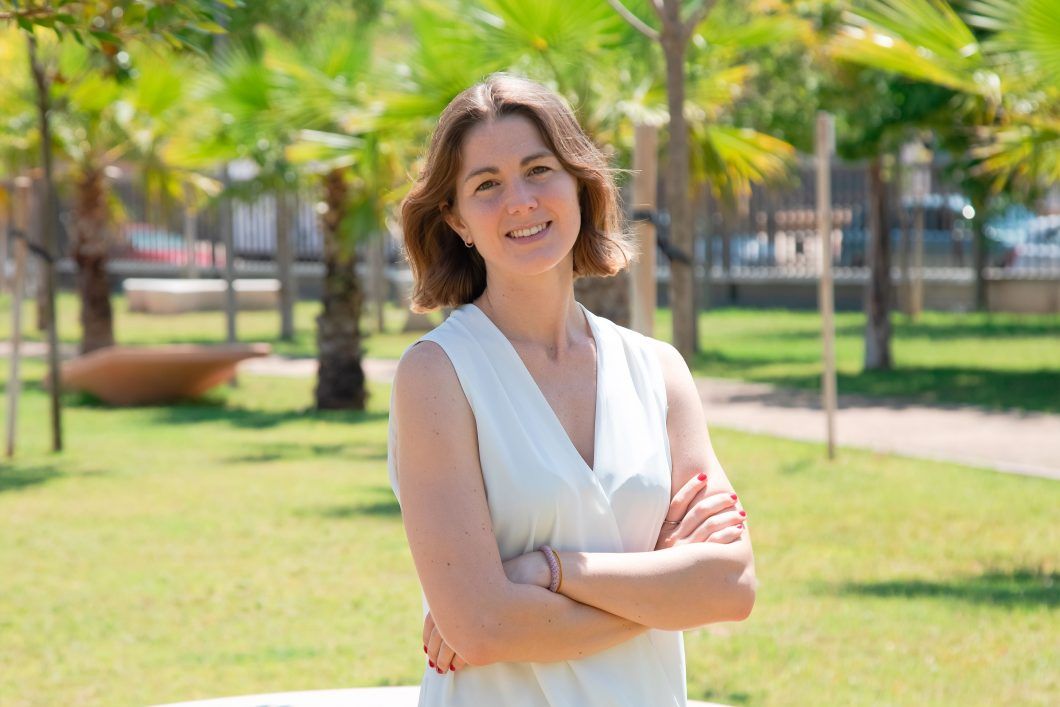
What were the main findings of your end-of-degree project (TFG) in Nutrition?
The truth is that in the end-of-degree project we gathered some very interesting data. Our plan was to test whether an inflammatory illness contributed to greater risk of cognitive impairment, but it was surprising to find that the group with fibromyalgia (an illness without an inflammatory component) presented higher levels of impairment than the arthritis group. In addition, with regard to malnutrition, which was also calculated using a validated questionnaire, we found that there was a marked prevalence in the over-50s. Also, by calculating parameters that indicate obesity, an attempt was made to show that not only was malnutrition a risk factor for cognitive decline and consequent dementia, but also that malnutrition due to overeating or obesity can be a risk factor. In the absence of a validated questionnaire which would help us calculate malnutrition due to overeating and in addition to evaluating the anthropometric data, we have established a food frequency test to assess food intake, as well as a questionnaire about adherence to the Mediterranean diet. Unfortunately, this data is not included in the end-of-degree project (TFG), but they will be evaluated next month.
Why did you choose this subject for your research?
The truth is that it all began with cognitive deterioration. I had been working withDr Lucrecia Moreno for a couple of years, as a student in her research group, undertaking screening tests in pharmacies, and working on my end-of-degree project in Pharmacy, for which I worked on genetics at the Institute of Biomedicine of Valencia. However, when I started to study Nutrition I discovered a an area of research with a great deal of potential, namely how diet can influence pathologies. From this moment on, we saw that we could carry out a study of patients with an intrinsic risk factor for the development of cognitive impairment, and we chose patients with inflammatory illness to do this.
The idea of carrying out a nutritional intervention, which could alleviate patients’ symptoms and especially their quality of life, seemed to be a really interesting study and so we got to work straight away.
Are you going to continue this research?
Yes, at the moment I am in my first year of the doctorate under the supervision of Dr Lucrecia Moreno and Dr María Auxiliadora Dea.
How important is the role which nutrition plays in people’s health?
According to my research and my reading of scientific journals, nutrition plays a very important role in the earliest stages of life, even from breastfeeding onwards. Many experts say that nutrition can act as either a protective or risk factor for numerous illnesses and, when combined with a healthy lifestyle (by which we mean various epigenetic factors working in combination), then it can help us to avoid certain illnesses for which we may have a genetic predisposition.
It seems to me that research into nutrition as a possible complementary therapy for illnesses has a very promising future.
Can we stall the effects of ageing with a specific diet?
Well, that’s a difficult question to answer, seeing as we should understand health as a collection of factors. If we work on the majority of these factors (a good diet, a healthy lifestyle, an uncontaminated environment, stress level, anxiety, etc.) we can age in a healthier way and therefore have a better quality of life, which can lead us living longer.
What would be the key factors?
In terms of diet, the key factors would be high consumption of antioxidant foods in order to prevent the oxidation by free radicals as much as possible, the avoidance of certain toxic foods like alcoholor following a Western diet (a diet based on trans fats, sugar, carbonated drinks, etc.). In my opinion, another important thing to would be to avoid inflammatory foods, since these can cause problems at a metabolic level. It is important to follow a varied diet and, above all, a diet with a lot of colour, in order to get all the necessary vitamins and minerals without having to take supplements.
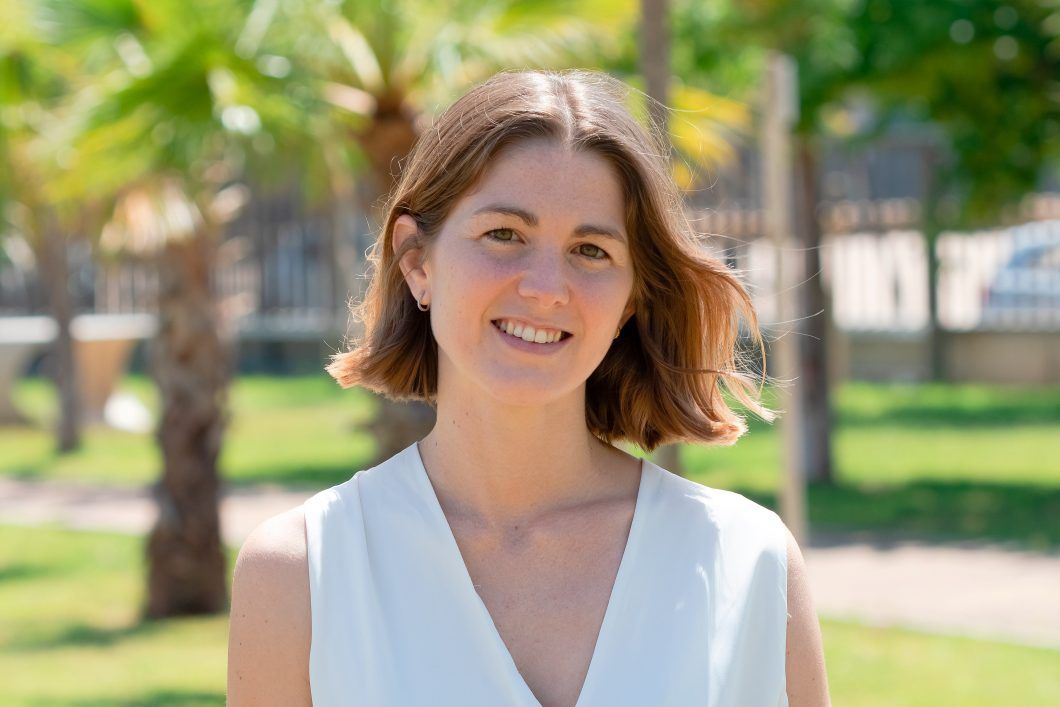
Marta, why did you decide to study Nutrition?
Well, the truth is that I have always really liked Nutrition, although it’s true that when I was young I wanted to be a pharmacist like my mother. During my degree in Pharmacy, I realized that one way of complementing my studies would be to study Nutrition. I think that, when considering a patient with a certain pathology, both degrees provide me with a better vision of the patient and their medication and how this might affect their metabolic changes, their diet and their life in general.
You have just graduated in Nutrition, how was your experience at CEU?
The truth is that it has been a great experience, thanks to my classmates as much as the lecturers.
For most courses, the lecturers are experts in their field and work in it, and this is something to be grateful for because they convey their passion to you.
Where do you see yourself in the future? Researcher, pharmacist or nutritionist?
That’s the million-dollar question. The truth is that I’m not sure what the answer is, but I love working as a community pharmacist. From my point of view, it is an under-appreciated profession, something which became even more evident during the pandemic. I believe that, as a community, pharmacists who are just starting out can do so much to fight the profession’s corner. With respect to nutrition, I have realized while studying the degree that I am fascinated with digestive nutrition. Finally, this year I’m starting to realize that I can really picture myself continuing carrying our research in the area my doctorate focuses on.
Perhaps it will be possible to find a way of both research paths together in the future.
Thank you Marta!
Well done for your dedication to science and the pharmacy profession!


